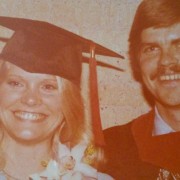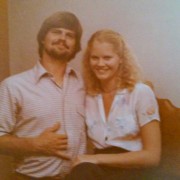SHE MEANT NO HARM
Undesired chores emerge when tending to a loved one’s death. I call to close her cell phone number, and when asked to explain the reason, I speak around the lump in my throat that my wife is deceased. Okay, she says, let me take care of that change for you. She meant no harm by her efficiency.
I go to the bank to remove my wife’s name from an account. The officer asks for my reason. She is deceased, I say. Let me talk to my manager, she replies. I wait in my loneliness. I wait, sensing the emptiness of the chair beside me. The officer returns. We’ll need a death certificate, she announces, meaning no harm.
As I drive home to get the document, tears run down along my face and I wonder what it would cost a bank in lost time for an officer to say she is truly sorry for my loss. To save on expense she could even skip the word “truly.” Just a sorry would help.
But I must be realistic. She can’t know that I weep in bed for the space beside me that now lies empty and cold. She can’t know that I break down and weep at the kitchen sink where my wife once smiled for the joy of feeding her family.
The Facebook friend who praises his wife on their anniversary can’t care that I won’t have any more. Just as the proud engagement stings the woman who longs to get married, or the birth announcement pains the infertile couple that has hoped in vain for a child for years. Grandma’s baby pictures shown so proudly ache in the heart that never held one, or lost one.
I have no moral for this story. I intend no guilt to be felt. In fact, we need glad announcements to counter those that sadden. Perhaps I write for the one who, like me, hurts today. One who, like me, will hurt for a really long time. To you, friend, I say that they mean no harm. Please forgive me if I have said or done insensitive things to you. I am truly sorry for your pain, for your loss. And I mean the “truly.”



